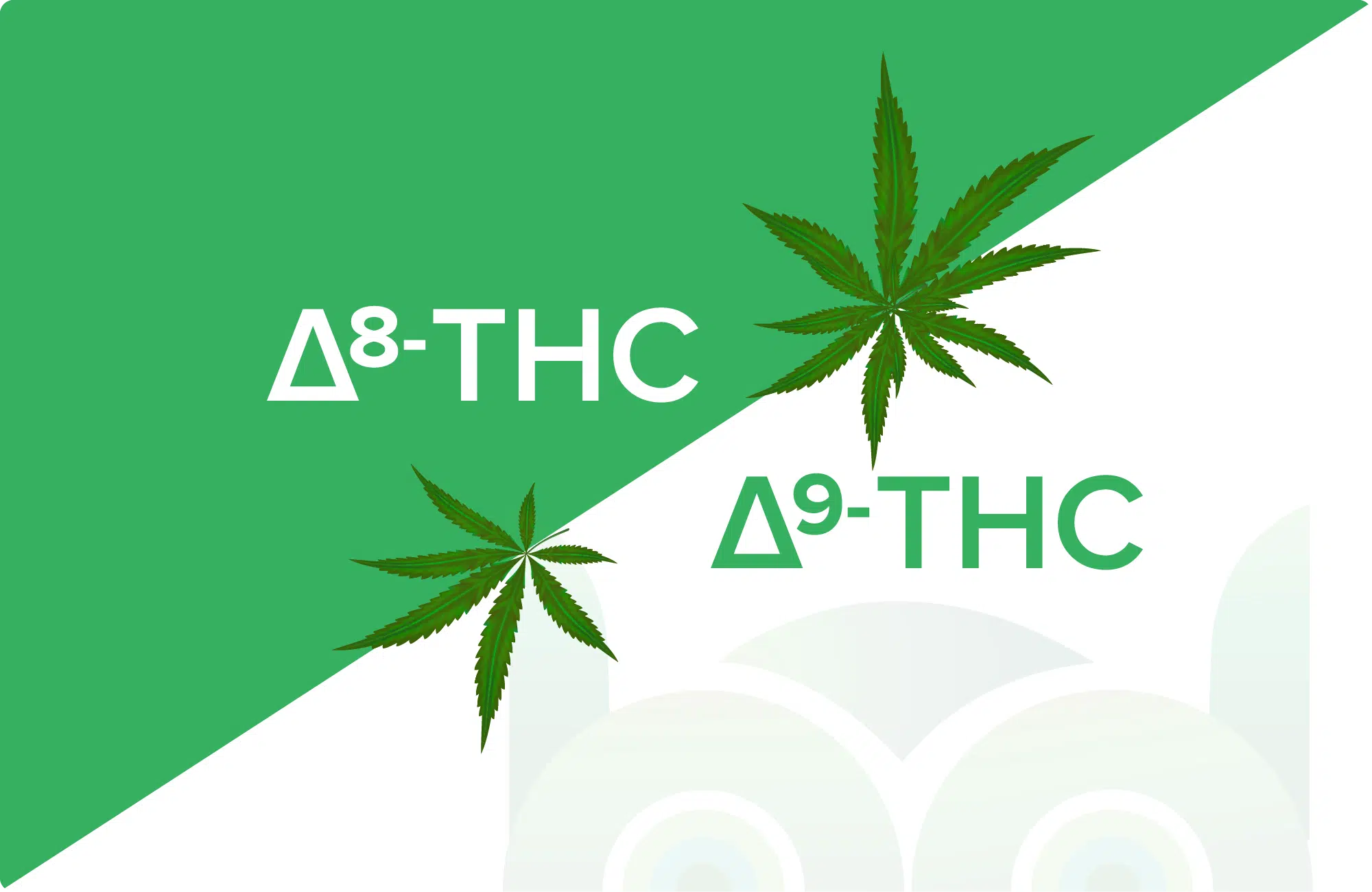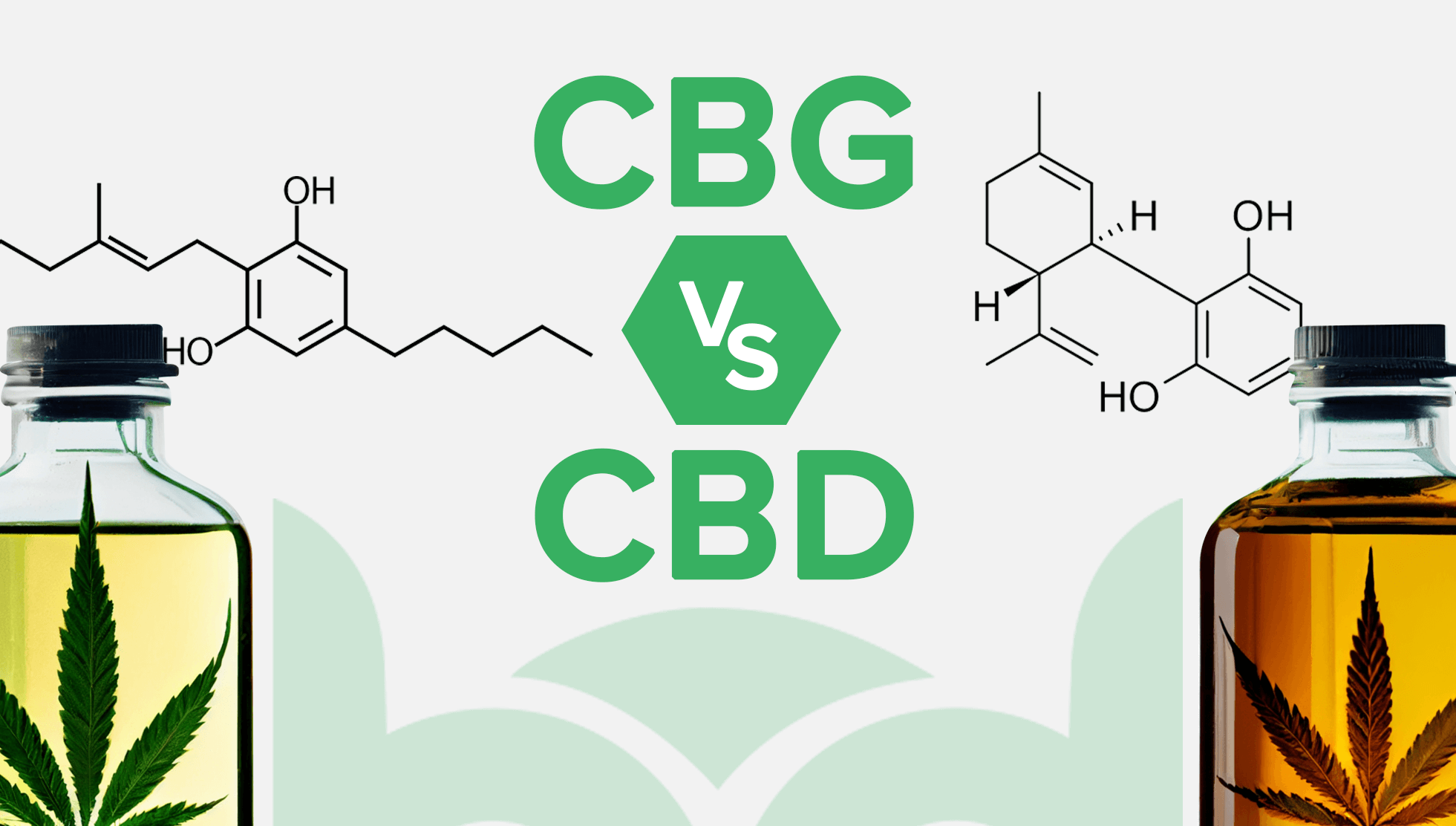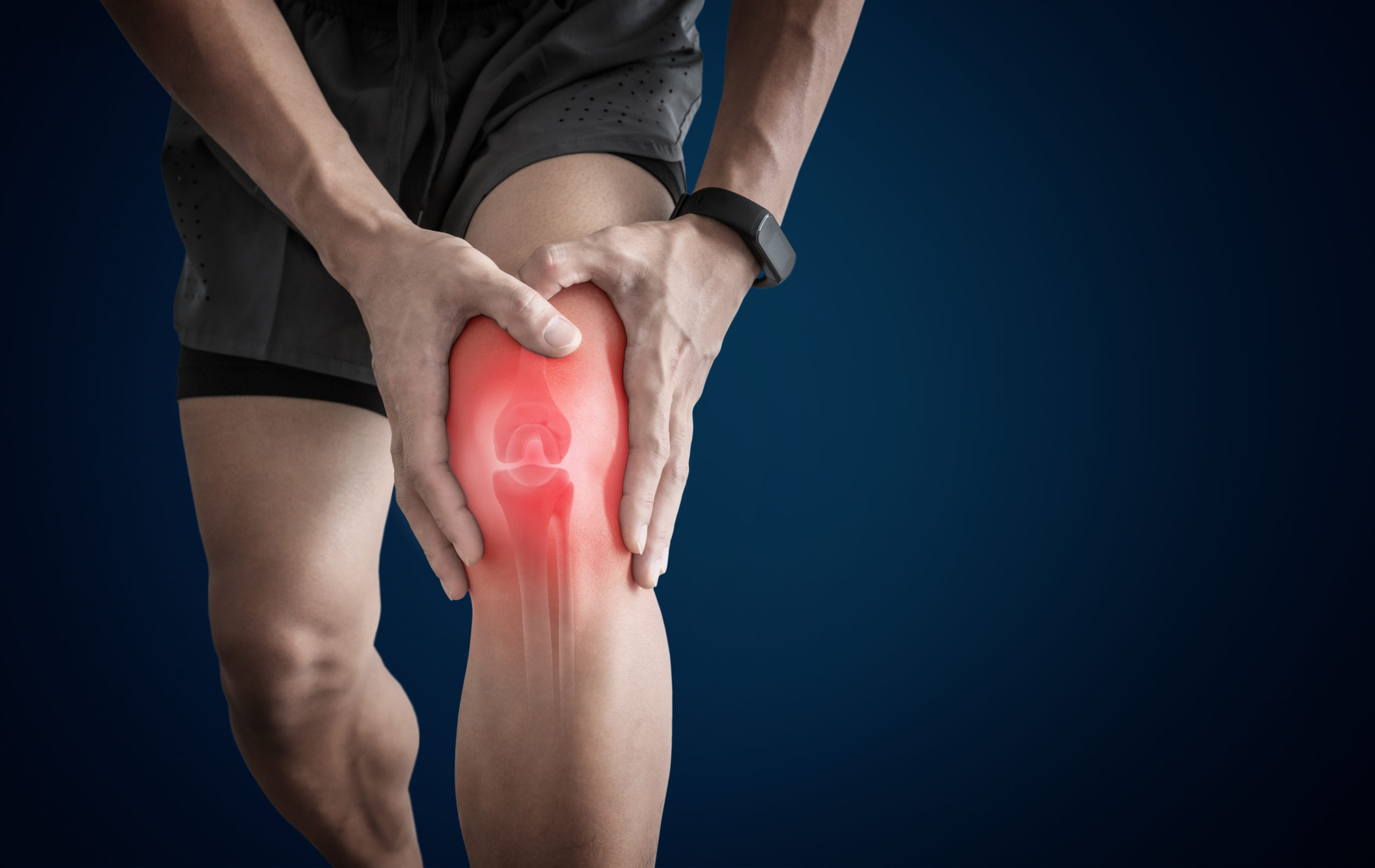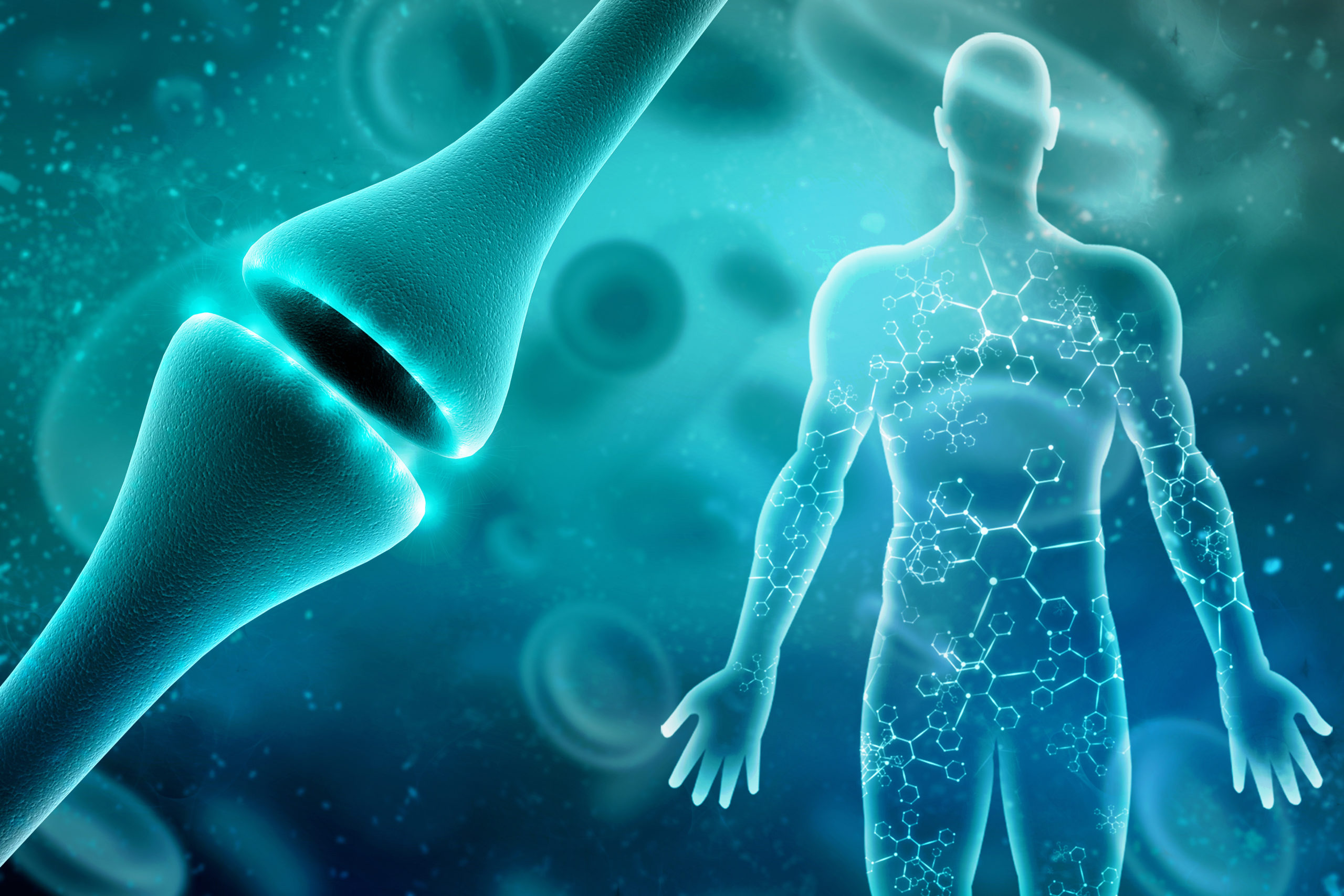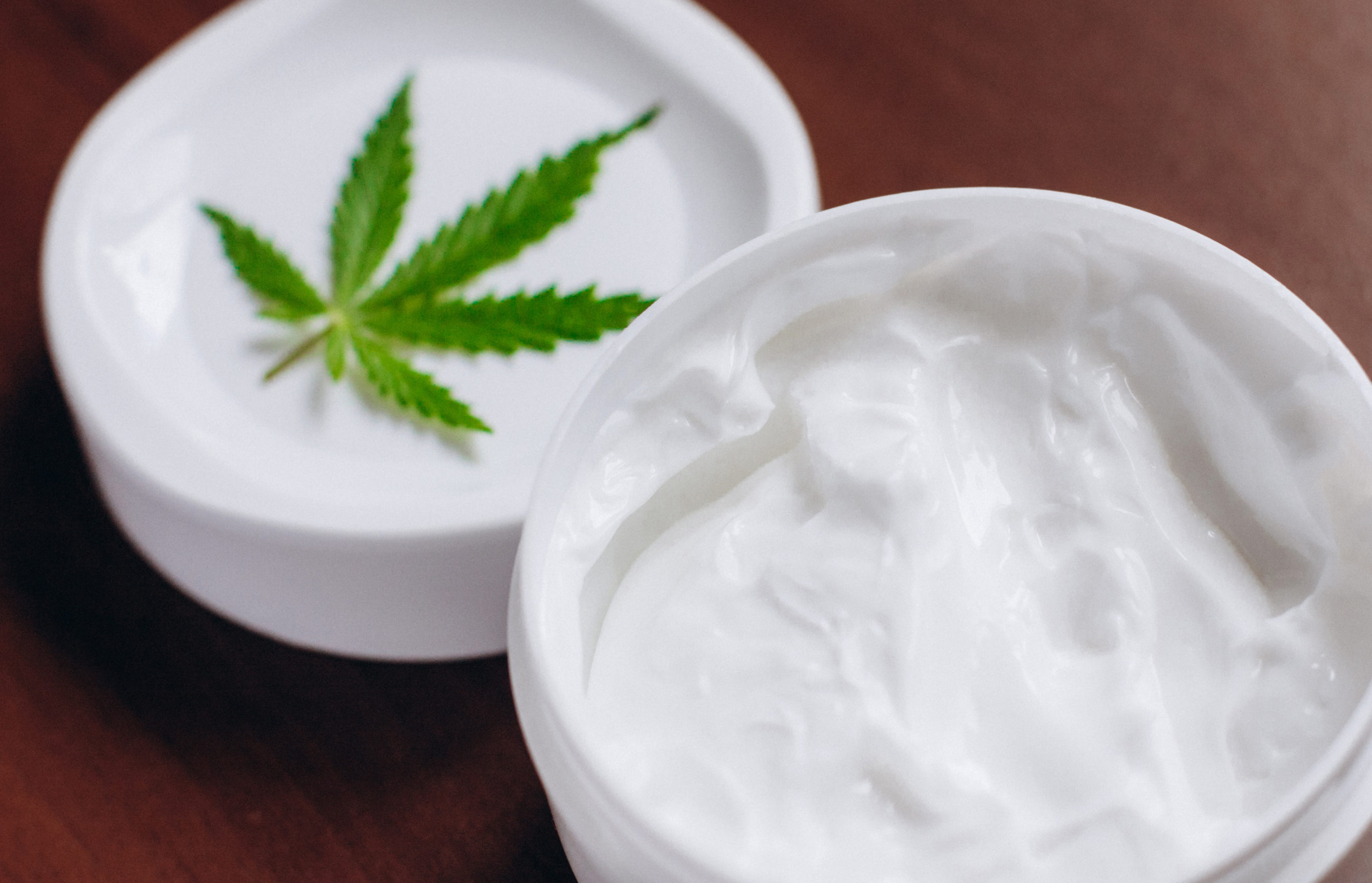-
- Market Research
- |
- CBD Near Me
- |
- Giveaways
- |
- Newsletter
- |
- Contact
- |
- Advertise
- |
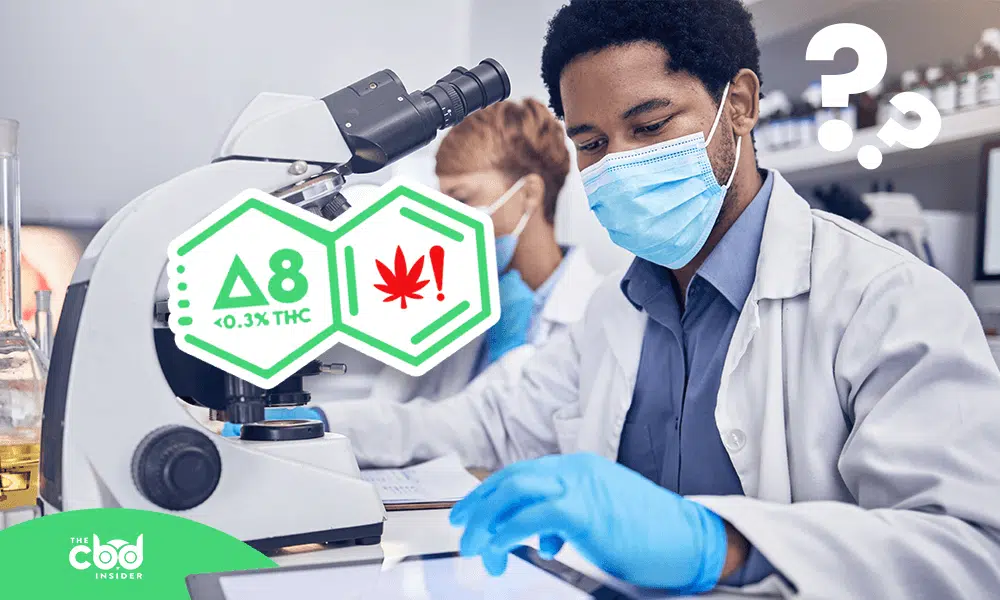
Yes, delta-8 THC can show up on a drug test.
Question answered—we’re done here.
Just kidding, it’s a bit more nuanced than that. While it’s true that the increasingly popular alternative to delta-9 THC can absolutely flag a drug test, there are several factors that influence the chance of delta-8 THC oil or other products producing a positive result.
Whether you’re “asking for a friend” or purely curious, this article will break down the basics of delta-8 THC, cannabinoid drug testing, and more to give you a clearer picture of how and when a positive result may happen.
The New Kid: A Quick Intro to Delta-8 THC
As we cover more extensively in this Complete Guide to Delta-8 THC, this newly (well, somewhat newly) popularized cannabinoid sweeping the hemp/cannabis industry is as close to its “molecular cousin,” delta-9 THC, as the name implies.
Where delta-8 THC has a double bond on the 8th carbon atom in a particular chain, delta-9 THC has the double bond on the 9th carbon atom.
Though the two cannabinoids have very similar chemical structures, delta-8 THC still produces significant differences in effects (and side effects), stability, and more.
To summarize, delta-8 THC is generally agreed upon to cause a less intense “high,” but is still psychoactive, and the delta-8 molecule is more resistant to oxidation, making it a more apt candidate for shelf-stable products.
As for its natural occurrence in cannabis plants, delta-8 THC is much less abundant than delta-9 THC. Selective breeding can increase the amount of delta-8 THC, but only to a small extent.
Hence, delta-8 THC is almost always synthesized from other cannabinoids, an inescapable step in the delta-8 oil, gummy, etc. production process that has engulfed the legal conversation across the states and on the federal level in controversy, with proponents lining up on both sides of the issue.
At first, big hemp brands were standing at the edge of the delta-8 THC pool and furtively side-eying each other, too proud to actually say, “No, you go first… no, you go first…” but a few have since jumped in with delta-8 THC gummies and other delta-8 products.
Now that you’ve at least got a primer on delta-8 THC, on to the issue at hand: when can delta-8 THC flag a cannabinoid drug test?
It’s most convenient when sussing out a clear answer to this question to rope all the key variables into two major categories, or “swing factors”: the product (and your use) and the test.

Swing Factor #1: The Product and How You Use It
The delta-8 THC concentration in your product will directly affect how long it takes to peak in your bloodstream, as well as how long the cannabinoid can stay in your system.
Similarly, both the amount consumed per day and the length of your overall use can dramatically influence how long (after cessation) delta-8 THC and other cannabinoids will remain detectable in your system.
Along those lines, each form in which delta-8 THC products typically come (ingestible oil, topical product, gummy, vape, etc.) has its unique “pharmacokinetics,” meaning a delta-8 THC oil will absorb, peak, and be eliminated at different rates than gummies, topicals, and so forth.
Finally, product purity can actually go both ways in terms of helping or harming your chances of failing a drug test with a delta-8 THC product, depending on the situation.
For example, a crappy product that is low in purity can test positive for delta-9 THC, or, if it’s impure enough, might even test negative for everything.
Though they are certainly influential on their own in terms of flagging a cannabinoid drug test (or not), most of the factors above relating to the delta-8 THC product and your use of it are contingent upon the type of drug test you take.
Swing Factor #2: The Drug Test
According to this Drug Court Practitioner Fact Sheet from the National Drug Court Institute, delta-8 THC may be more likely to flag some types of tests than others.
“The same urine that tested positive for cannabinoids in the initial screening test may not confirm as positive by gas chromatography/mass spectrometry (GC/MS) or liquid chromatography with tandem mass spectrometry (LC/MS/MS),” the document reads, adding, “If the confirmation test does not specifically search for delta-8 metabolites (and it does not do so routinely), the GC/MS or LC/MS/MS testing will not detect the delta-8 metabolites, and the original positive cannabinoid test may be erroneously reported as negative for THC…”
Alright, so there are a few important points to unpack here:
First of all, it’s crucial to understand that delta-8 THC and other cannabinoid tests are usually screening not directly for the cannabinoid, but for a metabolite of the cannabinoid.
Metabolites are simply byproducts left over in the tissues after the body breaks down substances like food, drugs, and other compounds.
Next, don’t be misled to believe based on the above quote that some forms of testing (gas chromatography, liquid chromatography, etc.) are incapable of detecting delta-8 THC; it was simply an example used to illustrate the broader point that any test (whatever it is) not calibrated to specifically detect the unique metabolites of delta-8 THC can produce a false negative.
On a less technical note, it’s true that different types of drug tests have unique limitations in terms of how long after your most recent consumption they can detect whatever substance in your system.
In general, blood tests are the shortest (less than a day), followed by saliva tests (around 24 hours), urine testing (3-30 days), and good luck if you get the hair test (90 days).
As we mentioned above, if your delta-8 THC product contains other cannabinoids, it’s less likely that you’ll have a false negative; both tests (if you take two) will likely be positive, so long as other factors (timing, amount in your blood, etc.) line up.
However, isolated delta-8 THC can and does pass some drug tests not calibrated to detect its metabolites.
Beyond these key points, the same issues that affect virtually all drug tests can influence false positives or negatives in the case of delta-8 THC drug testing, including, but not limited to:
- Contamination of the sample
- Certain foods/drugs that can cause a false result (poppy seeds, durian, weight loss pills, antidepressants, etc.)
- Incorrectly administered tests
- Incorrectly stored/preserved test samples
How Long Does Delta-8 Stay in Your System?
As much as we wish we could just give a universally applicable answer, this is yet another case of “it depends.”
Here is a list of factors that determines how long delta-8 THC can stay in your system:
- What is meant by “system” (hair, urine, blood, etc.)
- What the test is looking for (delta-8 THC, other cannabinoids, and/or metabolites?)
- How often you consume delta-8 THC.
- How long you’ve been consuming delta-8 THC for.
- Your average dosage size
- Diet (fat helps many cannabinoids absorb more efficiently)
- Your weight
- Medications, other supplements, and/or medical conditions
- And many more…
While we can’t even come close to a pinpoint response, considering all of these variables affecting how long delta-8 THC stays in your system, we can at least put a very broad fence around it.
From the moment you stop consuming delta-8 THC, the cannabinoid itself and/or its metabolites may remain detectable in urine, blood, and/or hair for a period of time ranging from 2-90+ days.
Delta-8 Drug Test FAQ
Will delta-8 show up with urine testing?
If the test is calibrated to detect delta-8 THC metabolites, and if there is a high enough concentration of the metabolite(s) in the urine, it’s likely that delta-8 THC will flag a urine test.
How long does it take for delta-8 to pass a drug test?
Depending on how much and how often you consume delta-8 THC products, it can take from 2-30 days to clear from the urine or blood, and up to several months for hair.
Will a small amount of delta-8 make you fail a drug test?
It depends on how small the quantity is, how finely calibrated the test is (and whether or not it’s calibrated for delta-8 THC metabolites), how long it has been since you consumed the quantity, and other factors.
Key Takeaways
We of all people understand how valuable hemp and cannabis products are to people battling stress, discomfort, and other issues, but nonetheless, the facts point to early and complete cessation of delta-8 THC use as the best way to prevent a positive result on a cannabinoid drug test.
If you pass a drug test while using delta-8 THC, don’t assume you will pass the next one, as different testing methods and/or different delta-8 products can affect results.
It’s crucial that you understand your tester’s and your state’s regulations on approved and banned substances before considering delta-8 THC or other cannabinoid-containing products.
Failing a drug test doesn’t mean you have no recourse, especially if you believe the result was a false positive.
Understanding how certain foods/substances impact results may be the difference between being granted a re-test and suffering the consequences of a positive test.


